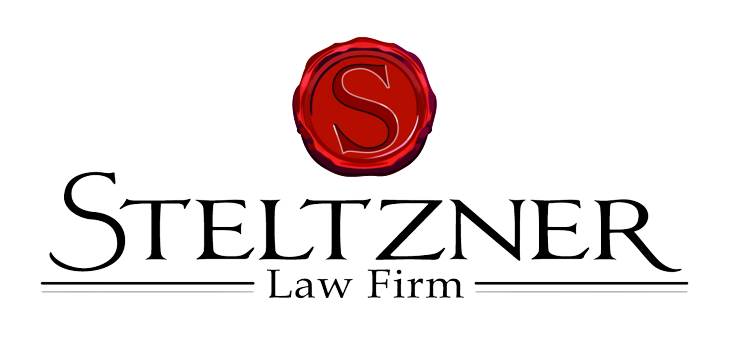Navigating Zoning Regulations in North and South Carolina | Real Estate Laws
Zoning regulations play a critical role in the real estate sector, affecting property development, uses, and value. These regulations are designed to govern land use, property setbacks, and building heights, ensuring organized growth in both urban and rural areas of North and South Carolina. For property investors and developers, understanding zoning laws is crucial in making informed decisions and maximizing the potential of their real estate ventures. As experts with more than three decades of combined experience in real estate transactions in North and South Carolina, we bring a wealth of expertise and insights into navigating the complex legal landscape of zoning regulations.
Partner with us to navigate the intricacies of zoning laws and make the most of your real estate ventures in North and South Carolina. With our in-depth understanding of local regulations, we can provide you with the necessary guidance and support to help you explore development opportunities while complying with zoning requirements. Empower your real estate investments with the knowledge and experience you need to make informed decisions about zoning regulations and their implications on your property transactions.
Leverage our extensive knowledge of real estate laws and zoning regulations to successfully navigate the dynamic North and South Carolina markets. By understanding the intricacies of zoning, you can make wise investments, capitalize on available opportunities, and strategically grow your real estate ventures.
The Role of Zoning Regulations in Real Estate
Zoning regulations are the foundation upon which land use and development are organized in North and South Carolina, ensuring orderly growth and stability for communities and ecosystems. These laws not only determine the types of properties that can be developed within specific zones, but also help maintain the balance between residential, commercial, industrial, and recreational areas. In the context of real estate transactions, zoning regulations play a crucial part in shaping investment decisions and guiding property developers in making wise choices for their projects.
Understanding Different Zoning Categories
To successfully navigate the intricacies of zoning laws, it is essential to familiarize yourself with the different categories and their specific characteristics:
- Residential Zoning: This category includes single-family homes, multi-family homes, and mobile homes, with regulations that vary based on the density and size of the residential development.
- Commercial Zoning: These zones allow for businesses such as retail establishments, offices, restaurants, and hotels, with distinct regulations in place to manage their operation, location, and hours.
- Industrial Zoning: This category comprises heavy and light industrial properties, including manufacturing plants, warehouses, and research facilities. Regulations within this zone address factors like noise, emissions, and waste disposal.
- Agricultural Zoning: This type of zoning encompasses land used for agriculture, livestock farming, and other primary production activities. Specific use regulations focus on the types of agriculture allowed and the amount of livestock permitted.
- Mixed-Use Zoning: This zoning category aims to create a blend of multiple land uses within a single area, including residential, commercial, and industrial developments, promoting a harmonious coexistence between different property types.
Understanding these zoning categories is a crucial step in identifying suitable investment and development opportunities that align with regulatory requirements in your desired location.
Examining the Impacts of Zoning Regulations on Real Estate Transactions
Zoning regulations play a pivotal role in determining the viability of real estate transactions and development projects in North and South Carolina. Here are some potential impacts you should consider when engaging in property investments:
- Development Potential: Zoning laws may limit or enhance your development potential, depending on the type and scale of the project you pursue. Property selection and zoning compatibility should be meticulously evaluated to avoid unwanted restrictions on development plans.
- Property Value: Zoning regulations can significantly influence property values, either positively or negatively, depending on factors like development restrictions, market demand, and location. Thorough research of zoning laws can help you make strategic investments that optimize your return on investment.
- Rezoning and Variances: In some cases, it may be necessary to petition for rezoning or request a variance to accommodate your project’s specific needs. Although this process can be time-consuming and costly, successfully changing the zoning status of a property can generate significant value and open up new opportunities for development.
Utilizing Expertise to Navigate Zoning Regulations and Maximize Real Estate Potential
Collaborating with professionals experienced in real estate laws and zoning regulations is essential to successfully navigate the complex legal landscape and maximize your investment potential. We can help you achieve your project goals by doing the following:
- Providing in-depth analysis of zoning regulations and their impact on your property investments.
- Guiding you through rezoning and variance processes, ensuring a successful outcome.
- Advising on strategic investments based on a thorough understanding of local zoning categories, opportunities, and risks.
In conclusion, understanding zoning regulations and their role in real estate transactions is paramount for investors and developers seeking to optimize their investments in North and South Carolina. By partnering with experienced professionals, you can leverage in-depth knowledge and guidance to navigate the complexities of zoning laws and make informed decisions that maximize your real estate ventures.
Entrust your real estate investments to Steltzner Law Firm, LLC’s expertise and experience as we guide you through the dynamics of zoning regulations and ensure the success of your property transactions. With a solid foundation in real estate laws and zoning, you can capitalize on emerging opportunities, protect your investments, and strategically grow your real estate portfolio. Contact us today to work with an experienced real estate attorney in Rock Hill, SC.
